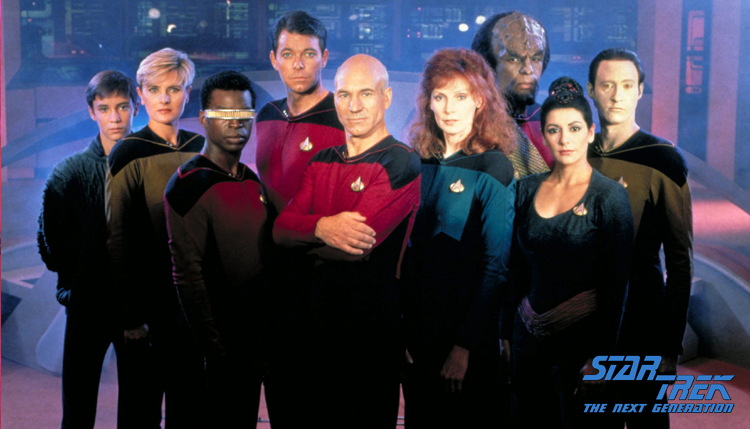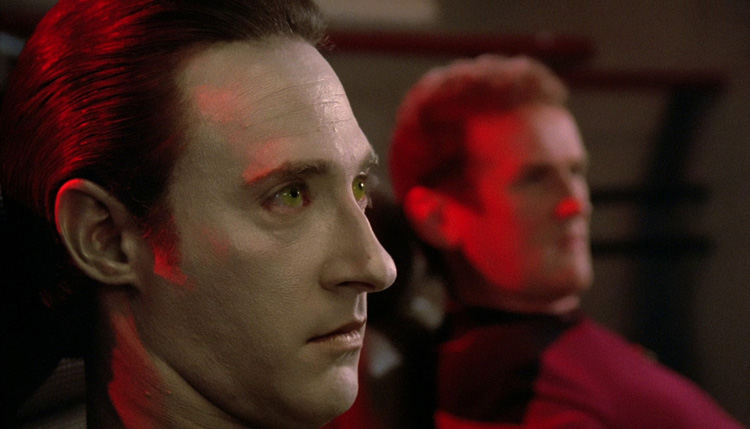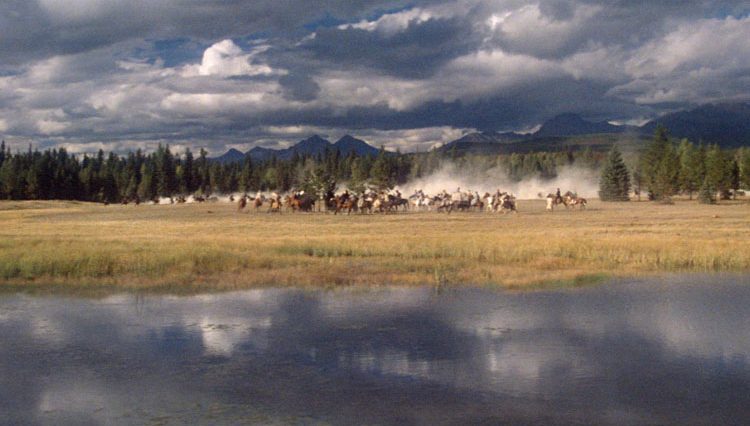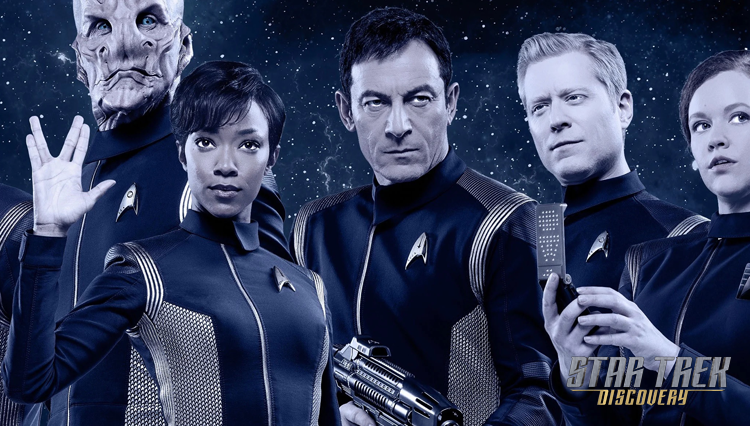
“You treat her like a lady … and she’ll always bring you home.”
The first time I saw a preview for Star Trek: The Next Generation, it had to be on the Paramount home video release of Star Trek IV: The Voyage Home. Though Gene Roddenberry had nothing to do with the production of that movie, he parlayed its surprise box office success into a Star Trek series deal with Paramount’s television production arm; a deal which netted him millions. Among his conditions for working with Paramount was complete creative control over the television product. Paramount agreed but brought in Rick Berman to act as a go-between for the studio. Roddenberry resented this move, but acquiesced, mainly because Paramount was still in the red for Star Trek: The Motion Picture (despite box office numbers, the movie was not profitable) and didn’t trust Roddenberry with line producer status.
D.C. Fontana’s concise “Encounter at Farpoint” teleplay was heavily re-written by Roddenberry and padded out to a full two-hour event. Roddenberry added the “Q” character to Fontana’s compelling script, initially an uninspired knock-off of Trelane from the “Squire of Gothos” episode from the first season of Star Trek. Indeed, many of the characters in the spin-off series would be variations of characters from the aborted Phase II project of 1976. Riker is Commander Decker, and Troi is a variation of Ilia. The show would even make use of teleplays originally written for the Phase II project. Unlike the original series pilot, “Encounter at Farpoint” begins at the start of a mission with introductions all around. We see Picard in his ready room staring out one of the many viewing ports of this magnificent ship.

The ship’s bridge and standing sets lack the bold primary colors of the original series but the computer consoles and visual effects more than make up for the beige comportment and characterizations. Starfleet has given the crew the vague assignment of “solving the mystery of Farpoint station.” I don’t understand these instructions. Does Starfleet think shenanigans are afoot? It doesn’t matter because a force-field materializes in front of the ship. Q enters (with various costume changes) and decides to put the bridge crew on trial for the “crimes of humanity.” To connect his storyline with Farpoint, he tests the crew, even though everything that happens going forward reveals nothing about humanity but rather the practice of patience, and patience is not an exclusively human virtue.

Why does Q pick on humans, specifically? Why not the Klingons, the Romulans, or the Ferengi? I don’t buy his “superior morality” line of reasoning. If anything, he proves humans are superior to the “Q,” but that idea never seems to come up even as the crew jumps through every hurdle he puts in their path. The “mystery” of Farpoint is that whatever you want, you can have. Riker wants an apple, he gets a big bowl of apples. Crusher wants gold-colored fabric, she gets a whole bolt of gold-colored fabric. There are some weird acting beats in the pilot; characterizations that would be smoothed out as we move forward. Picard is a cranky-pants. Yar is loud and angry. Data is creepy. Wesley is inappropriate in mixed company. Only Worf and (the as yet unnamed) O’ Brien (putting on a British accent) are spared these dubious “quirks.”
We kind of know where this is going. I see no need to spoil the episode because the episode spoils the episode. The saving grace is the production design and the effort required to bring Star Trek back to the small screen with a budget (severely hampered by Roddenberry’s money-grab) appropriate for the franchise. When Riker asks if all their missions will be like this first one, Picard assures him they will have much more interesting assignments. He didn’t know how right he was.
Twice a week, Star Trek Rewind explores the Star Trek universe. From Archer to Janeway, Kirk to Picard, and Georgiou to Sisko — boldly read what no one has read before!



